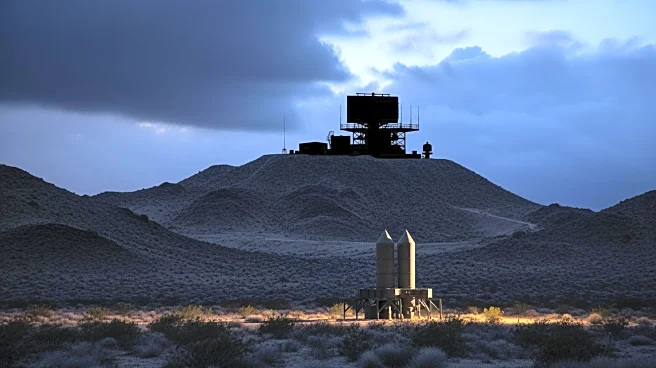What is the story about?
What's Happening?
Eaton, an intelligent power management company, has announced that its smart factory in Changzhou, China, has been recognized as a Lighthouse by the World Economic Forum (WEF). The Global Lighthouse Network, established in 2018, honors manufacturing sites worldwide that demonstrate exceptional performance in productivity, supply chain resilience, customer centricity, sustainability, and talent. Eaton's Changzhou factory, operational for nearly two decades, has digitalized its operations, enhancing efficiency and reducing costs. The site manages 164,000 SKUs and 5,000 new designs annually, utilizing industry 4.0 technologies such as artificial intelligence, simulation, robotics, generative AI, and digital twin technology. These advancements have led to a 39% improvement in lead time, a 50% increase in efficiency, and a 129% rise in revenue, all achieved without increasing headcount.
Why It's Important?
The recognition of Eaton's Changzhou factory as a WEF Global Lighthouse highlights the company's commitment to advanced manufacturing technologies and sustainable practices. This achievement underscores the potential of industry 4.0 technologies to transform manufacturing processes, leading to significant gains in efficiency and revenue. For the U.S., Eaton's success in implementing these technologies can serve as a model for other companies seeking to enhance their manufacturing capabilities and competitiveness in the global market. The focus on digitalization and sustainability aligns with broader industry trends towards electrification and renewable energy, which are crucial for addressing global power management challenges and building a sustainable future.
What's Next?
Eaton plans to continue expanding its smart factory initiatives, with nine additional sites established across Brazil, China, Europe, Mexico, and the United States as part of its Industry 4.0 strategy. The company is likely to further integrate advanced technologies to enhance productivity and sustainability across its operations. Stakeholders, including industry leaders and policymakers, may look to Eaton's approach as a benchmark for modernizing manufacturing practices. The ongoing development of smart factories could lead to increased collaboration and innovation within the industry, driving further advancements in technology and sustainability.
Beyond the Headlines
The recognition of Eaton's Changzhou factory by the WEF may have broader implications for the manufacturing industry, particularly in terms of ethical and cultural dimensions. The adoption of industry 4.0 technologies raises questions about workforce dynamics, including the need for reskilling and the impact on employment. Additionally, the emphasis on sustainability and customer centricity reflects a shift towards more responsible and consumer-focused business practices. As companies increasingly prioritize these values, there may be long-term shifts in industry standards and consumer expectations.
















